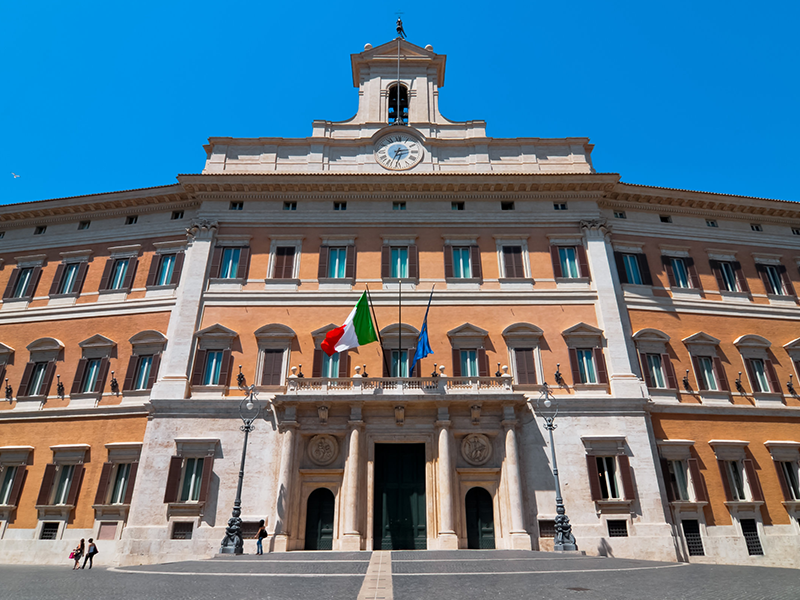The allocation of the Municipal Solidarity Fund
Rome, 09/27/2021
Italy is characterized by historical territorial disparities regarding economy, society and the services provided to citizens. The reform of Title V in 2001 aimed to reduce these differences by giving greater financial autonomy to local authorities on the one hand and introducing an equalization fund on the other, which should allow the most disadvantaged administrations to guarantee essential services for their citizens.
The 2001 reform introduced the two fundamental principles of federalism into the legal system: fiscal autonomy and solidarity between local authorities. See "The fiscal federalism reform and its implementation." After various regulatory interventions over the years, the reform of Title V introduced an equalization fund as part of the broader municipal solidarity fund.
The allocation of the Municipal Solidarity FundThe fundamental principle underlying the allocation of the Fund is solidarity. Thus, the most disadvantaged municipalities should receive resources from the Municipal Solidarity Fund, and the more economically stable ones should finance it. Besides the equalization resources aiming to reduce territorial disparities, the municipal solidarity fund also allocates resources to compensate municipalities for lower local tax revenues and transfers. In particular, the Imu and Tasi revenues, reduced by the 2016 stability law. Furthermore, the 2021 budget law introduced a third component linked to the service objectives. Additional resources will finance the development of social services and nursery schools in Italian municipalities. At present, the Municipal Solidarity Fund consists of 3 components: traditional resources, including the equalization fund; resources compensating the decreased IMU and TASI revenues resources to develop the municipal social services and strengthen nursery schools. In 2021, the Fund's resources amount to 6.6 billion euros and will increase year by year, up to 7.7 billion in 2030. Apart from a vertical component, including government transfers to local authorities, the Municipal Solidarity Fund is financed by municipalities according to the principle of equalization. Usually, richer administrations feed the Fund, and the most disadvantaged are the beneficiaries to limit territorial economic disparities.
Only 7% of the municipalities pay resources to the Municipal solidarity Fund.
Municipalities in regions with an ordinary statute that pay or receive resources from the municipal solidarity fund (2019)
Source: Openpolis elaboration on SOSE database [edit chart]
In the regions with an ordinary statute, 474 municipalities paid resources to the Municipal Solidarity Fund in 2019 against the 6,054 beneficiaries. As the chart shows, the municipalities that financed the Municipal Solidarity Fund are mainly in northern and central Italy and less in the south.
All large cities receive resources from the Municipal solidarity Fund.
According to 2019 data, Naples received the most significant overall and per inhabitant share (€ 328.306.244.96 and € 338.40 respectively) compared to the ten most populous municipalities in the country. The explanation is that the city shows the lowest per capita tax capacity. Considering the per capita value of the Municipal Solidarity Fund, Genoa (€ 226.09), Turin (€ 200.66), and Florence (€ 157.49) follow, while Padua (€ 66.43), Rome (€ 61.46) and Milan (€ 8.14) recorded the lowest values.
Municipalities with lower fiscal capacity receive more resources from the Municipal Solidarity Fund. Municipal solidarity fund per capita in large cities in regions with an ordinary statute (2019)
SOURCE: openpolis elaboration on Sose database
THINGS TO KNOW
The municipal solidarity fund consists of the resources allocated to municipalities under the current legislation on fiscal federalism.
The allocation of the Municipal Solidarity Fund Resources paid into or received from the Municipal Solidarity Fund by the municipalities in the regions with an ordinary statute.
DESCRIPTION
To know the resources paid into or received from the Municipal Solidarity Fund by your municipality, click on "Search-----" and write the name of your municipality.
Click the column heading to set the sort order.
Source: openpolis elaboration on Sose database
